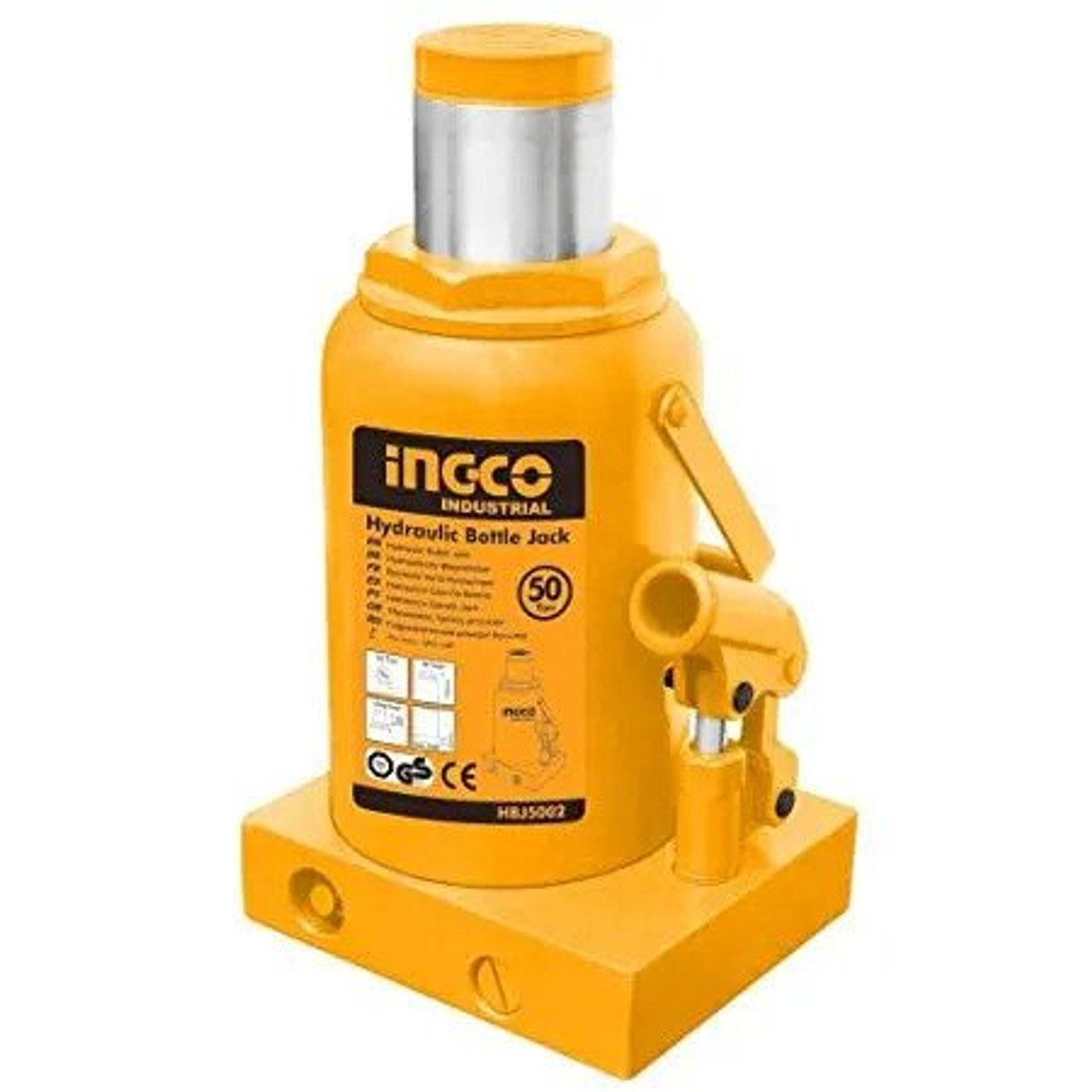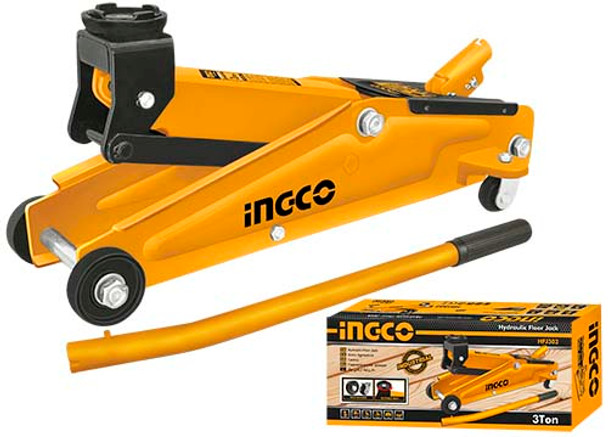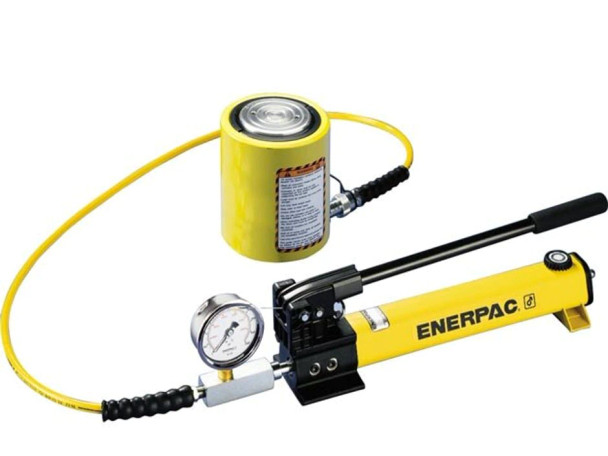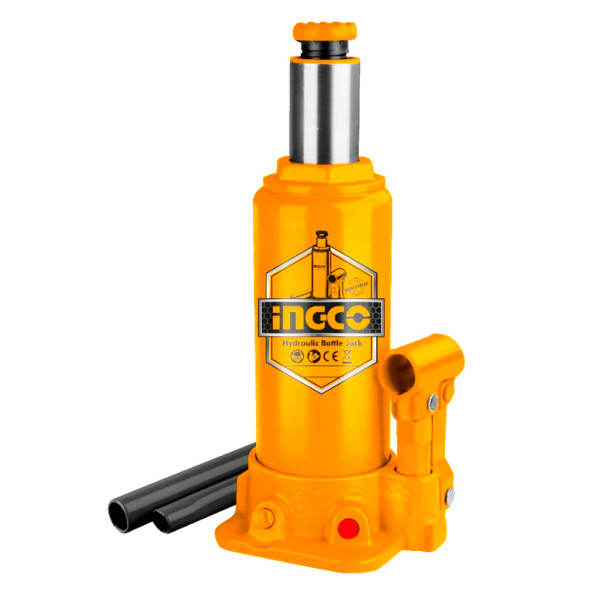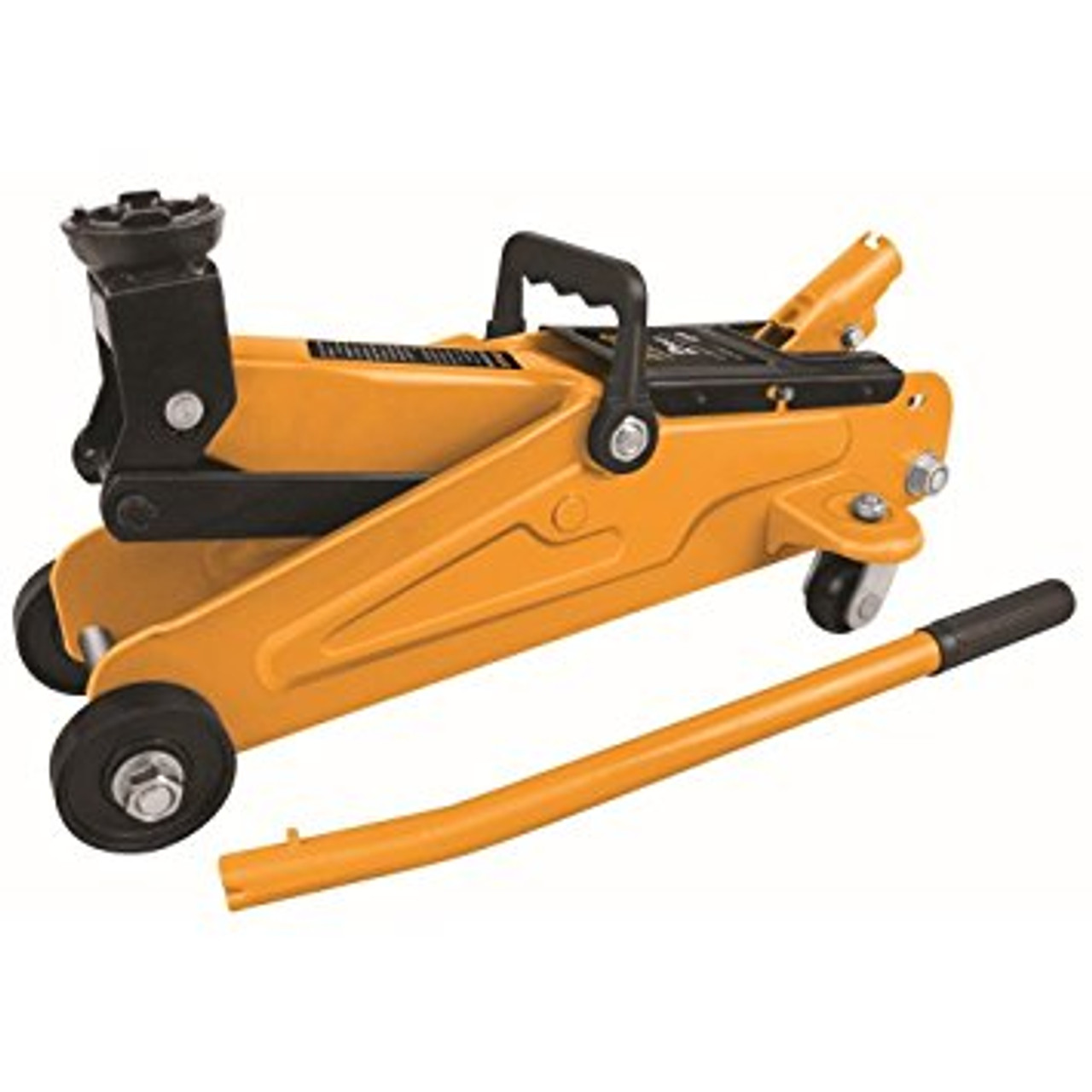The Best Hydraulic Jacks for Industrial Applications
Key Takeaway
- Load Capacity: Selecting the right hydraulic jack is crucial for safely lifting heavy equipment and materials, with options available to handle various load capacities based on industrial needs.
- Versatility and Application: Hydraulic jacks come in various types, such as floor jacks, bottle jacks, and toe jacks, each designed for specific industrial tasks, ensuring optimal performance in diverse applications.
- Safety Features: High-quality hydraulic jacks are equipped with essential safety features, including overload protection and automatic safety valves, to prevent accidents and ensure safe operation.
- Maintenance and Longevity: Regular maintenance of hydraulic jacks, including checking fluid levels and inspecting seals, is vital to ensure reliability, enhance performance, and extend their operational lifespan.
Introduction
Hydraulic jacks play a crucial role in a wide range of industrial applications, from heavy equipment maintenance to construction and manufacturing. They are used to lift heavy loads with minimal effort, relying on hydraulic pressure to provide the necessary lifting power.
When selecting the best hydraulic jack, factors such as capacity, durability, and ease of use are crucial. Bottle jacks, like the Ingco 50Ton Hydralic Bottle Jack (HBJ5002), are ideal for lifting heavy machinery and vehicles due to their compact design and high lifting power, often supporting up to 50 tons. Floor jacks, such as the Arcan XL2T Low Profile Steel Jack, provide a more versatile option, offering stability and ease of maneuvering, making them ideal for industrial workshops.
For even heavier loads, air hydraulic jacks like the Sunex 66037 Service Jack combine hydraulic power with air pressure for quick and efficient lifting. These jacks are built with robust materials to withstand harsh environments, ensuring reliability in industrial settings.
In this guide, we will explore the different types of hydraulic jacks, their applications, and what factors to consider when choosing the best hydraulic jack for your needs.
Ingco Hydraulic bottle jack 50 Ton HBJ5002
How Hydraulic Jacks Work
Hydraulic jacks operate on the principle of Pascal's Law, which states that pressure applied to a confined fluid is transmitted equally in all directions. When the jack’s handle is pumped, hydraulic fluid is forced into the cylinder, moving the piston and generating the force needed to lift the load. Hydraulic jacks are particularly effective because they can lift extremely heavy loads using a relatively small amount of force. The main components of a hydraulic jack include:
1. Cylinder: Houses the hydraulic fluid and piston.
2. Piston: The moving part that exerts pressure on the load.
3. Hydraulic Fluid: Transmits the force from the pump to the piston.
4. Pump/Handle: Used to apply pressure to the fluid, moving the piston upward.
The ability of hydraulic jacks to amplify force makes them ideal for industrial environments where heavy machinery or vehicles need to be lifted for repair, maintenance, or relocation.
Types of Hydraulic Jacks
Hydraulic jacks come in various forms, each suited to different tasks and environments. Here are the main types of hydraulic jacks used in industrial settings:
1. Bottle Jacks:
Bottle jacks are vertical hydraulic jacks with a cylindrical body resembling a bottle. They are capable of lifting very heavy loads and are commonly used in industrial environments where large machinery or vehicles need to be raised. Their compact design makes them suitable for tight spaces. However, their vertical lifting mechanism requires more clearance, which can be a limitation in some applications. Bottle jacks are particularly favored in industries such as construction and heavy equipment repair.
Common Applications: Heavy equipment maintenance, construction sites, and industrial vehicle repair.
Advantages: High lifting capacity, compact size, ease of use.
Disadvantages: Requires vertical clearance, less stable on uneven surfaces.
2. Floor Jacks:
Floor jacks, also known as trolley jacks, are horizontal jacks mounted on wheels or casters. They offer greater stability than bottle jacks, making them ideal for lifting heavy machinery or vehicles in industrial workshops. Their long arm allows for precise control over lifting, and they are easy to maneuver due to their wheeled design. Floor jacks are commonly used in automotive repair shops and heavy-duty industrial settings where stability and mobility are crucial.
Common Applications: Industrial vehicle maintenance, machine repair, heavy equipment lifting in workshops.
Advantages: High stability, easy mobility, controlled lifting.
Disadvantages: Bulky, requires horizontal space for maneuverability.
3. Toe Jacks:
Toe jacks are specialized hydraulic jacks designed to lift heavy loads from low-clearance spaces where other jacks might not fit. They feature a low-profile toe that can slide under loads with minimal ground clearance. This makes them ideal for lifting machinery and equipment where space is a constraint, such as in confined industrial environments.
Common Applications: Lifting machinery with low ground clearance, relocating heavy equipment.
Advantages: Can lift heavy loads from extremely low clearances, compact design.
Disadvantages: Limited lifting height, less versatile for general lifting tasks.
Hydraulic Floor Jack 3Ton INGCO (HFJ302)
Key Factors to Consider When Choosing a Hydraulic Jack
Choosing the right hydraulic jack for industrial applications involves understanding the specific requirements of the task. Here are some key factors to consider:
1. Lifting Capacity:
The lifting capacity of a hydraulic jack is one of the most important factors to consider. It is essential to choose a jack with a capacity that exceeds the weight of the load to ensure safe and reliable operation. For example, heavy-duty industrial tasks may require jacks with capacities of 10 tons or more.
2. Lift Range and Height:
The lift range refers to the minimum and maximum height that the jack can lift a load. For industrial applications, it's crucial to ensure that the jack’s lift height is sufficient for the task at hand. Toe jacks, for instance, are useful when minimal clearance is available, while bottle jacks can lift loads to a higher elevation.
3. Jack Type Based on Task:
Different tasks require different types of hydraulic jacks. For example, a floor jack might be ideal for vehicle maintenance in a workshop, while a toe jack could be better suited for lifting machinery with limited ground clearance. It is important to match the jack type to the task to optimize performance and safety.
4. Portability and Weight:
Portability can be a critical factor in industrial environments, especially when jacks need to be moved between different locations. Aluminum-bodied hydraulic jacks are lightweight and easy to transport, while heavier steel jacks are more durable but less portable.
5. Durability and Build Quality:
Industrial applications demand jacks that can withstand heavy usage and harsh conditions. Look for hydraulic jacks made from high-quality materials like hardened steel or aluminum to ensure durability. Additionally, check for features such as overload protection and corrosion-resistant finishes to extend the lifespan of the equipment.
ENERPAC 50 Ton Hydraulic Cylinder and Hand Pump Set
Top Hydraulic Jacks for Industrial Use
When selecting the best hydraulic jacks for industrial use, it's essential to consider the application, weight capacity, and operational efficiency. Here are some of the top-rated hydraulic jacks available in the market, known for their reliability, durability, and performance in demanding industrial environments:
1. High-Capacity Hydraulic Bottle Jacks:
For industries that require lifting extremely heavy loads, high-capacity bottle jacks are an excellent option. Models with capacities of 20 tons or more are common in construction and heavy machinery repair. Brands such as Ingco jack offer durable, high-lift bottle jacks that provide the necessary strength and height for industrial tasks.
Best Uses: Heavy construction equipment lifting, industrial vehicle maintenance.
Key Features: High lift range, compact design, heavy-duty steel construction.
2. Heavy-Duty Hydraulic Floor Jacks:
Floor jacks designed for industrial applications are built for stability and mobility. Models like the Sunex 6603ASJ or Blackhawk B6350 are capable of lifting up to 3.5 tons and feature long arms for smooth, controlled lifting. These jacks are commonly used in automotive workshops and industrial settings where heavy machinery needs frequent maintenance.
Best Uses: Vehicle repair, machinery lifting in industrial workshops.
Key Features: Sturdy frame, mobility with wheels, precise lifting control.
3. Toe Jacks for Machinery Moving:
Toe jacks like the Enerpac JHA Series are perfect for low-clearance lifting tasks. With lifting capacities ranging from 5 to 50 tons, they are specifically designed for moving and positioning heavy machinery in confined spaces. These jacks are compact but powerful, offering a reliable solution for lifting industrial equipment with minimal ground clearance.
Best Uses: Lifting heavy machinery with low ground clearance, industrial machine maintenance.
Key Features: Compact toe design, high lifting capacity in confined spaces.
4. Compact and Portable Hydraulic Jacks:
For smaller or more mobile industrial tasks, compact hydraulic jacks are a must. Omega 32225B offers a bottle jack that is easy to carry, yet capable of lifting up to 22 tons. These jacks are often used in situations where portability is key, such as field service or equipment relocation across industrial sites.
Best Uses: Field equipment servicing, mobile industrial applications.
Key Features: Lightweight, easy to transport, high lifting power in compact size.
5. Hydraulic Jacks for Extreme Loads:
In industries such as manufacturing or shipbuilding, where extreme loads are common, jacks like the Hi-Lift X-Treme Jack or ESCO Professional series provide high-capacity options designed to lift loads upwards of 50 tons. These jacks are robust and engineered for heavy-duty use in challenging environments.
Best Uses: Manufacturing, shipbuilding, and other heavy industrial applications.
Key Features: High-capacity lifting, rugged construction, built for extreme loads.
INGCO Hydraulic bottle jack 12Ton (HBJ1202)
Safety Considerations in Hydraulic Jack Usage
Safety is paramount when working with hydraulic jacks in industrial settings. The immense weight these jacks can lift makes them highly effective but also potentially hazardous if not used correctly. Here are several safety considerations to ensure the proper and secure operation of hydraulic jacks:
1. Adhere to Manufacturer Specifications: Always ensure that the load does not exceed the jack’s rated capacity. Overloading can lead to jack failure, which can cause serious accidents or damage to equipment.
2. Safety Features to Look For: When selecting a hydraulic jack, opt for models that include safety valves to prevent overloading, as well as overload protection systems. These features can reduce the risk of accidents by ensuring that the jack is used within its safe operating limits.
3. Proper Jack Placement: Ensure the jack is placed on a stable, level surface to prevent tipping or shifting during lifting. For bottle jacks and floor jacks, the base should be fully supported to distribute the load evenly. Toe jacks should be positioned securely under the load to avoid slippage.
4. Maintenance and Inspection: Regularly inspect the jack for signs of wear or damage, such as hydraulic leaks or bent pistons. Any damaged equipment should be repaired or replaced immediately to prevent malfunctions during operation.
Safe Lifting Practices: Gradually lift loads and avoid sudden movements that could destabilize the jack. Use jack stands or other support equipment to hold the load in place once lifted, as hydraulic jacks are not designed to sustain weight over extended periods.
Maintenance and Care for Hydraulic Jacks
To ensure that hydraulic jacks remain reliable and efficient over time, proper maintenance and care are essential. Here are some tips for maintaining hydraulic jacks in industrial settings:
1. Regular Inspections: Periodically check for hydraulic fluid leaks, corrosion, or damage to the piston or pump. Ensure that the seals are intact and that there is no visible wear on the moving parts.
2. Fluid Level and Quality: Check the hydraulic fluid level regularly and top it up as needed. Also, ensure that the fluid is clean and free of contaminants, as dirty fluid can reduce the efficiency of the jack and lead to premature wear.
3. Lubrication: Lubricate moving parts such as the piston and pump mechanism to prevent friction and wear. This will ensure smooth operation and extend the lifespan of the jack.
4. Proper Storage: Store hydraulic jacks in a dry, clean environment to prevent rust and corrosion. If possible, keep the jack in its lowered position to reduce stress on the seals.
5. Periodic Servicing: For industrial-grade jacks, it’s a good idea to schedule regular servicing by a professional to ensure that all components are functioning optimally. This can help identify any potential issues before they become serious problems.
Hydraulic Floor Jack 2Ton INGCO HKJ201
Frequently Asked Questions
1. What is the difference between a bottle jack and a floor jack?
A bottle jack is a vertical hydraulic jack known for its high lifting capacity, often used in confined spaces. A floor jack, also known as a trolley jack, is mounted on wheels and offers better stability and control, making it ideal for automotive and industrial workshops.
2. Can hydraulic jacks be used for long-term load holding?
No, hydraulic jacks are designed for lifting, not holding loads over extended periods. Once a load is lifted, it should be supported with jack stands or other stable equipment.
3. How do I maintain my hydraulic jack?
Regular inspections for leaks, topping off hydraulic fluid, lubricating moving parts, and storing the jack in a dry, clean place are essential maintenance steps. Periodic servicing by a professional can also extend the lifespan of the jack.
4. What is the maximum weight a hydraulic jack can lift?
Hydraulic jacks come in various capacities, from a few tons to over 50 tons. The key is to choose a jack with a capacity that exceeds the load you plan to lift by at least 25% to ensure safe operation.
5. What safety features should I look for in a hydraulic jack?
Look for jacks with overload protection, safety valves, and non-slip bases. These features help prevent accidents by ensuring the jack is used within its safe operating limits.
Related Articles
Hydraulic Jack vs. Mechanical Jack: Which is Better?
Hydraulic Jacks for Automotive Repair: Key Features and Benefits
Readers also Watched...
Conclusion
Choosing the right hydraulic jack for industrial applications requires a thorough understanding of the different types available and their specific uses. Bottle jacks are ideal for heavy-lifting tasks with limited space, while floor jacks offer stability and mobility for vehicle and machinery maintenance. Toe jacks are perfect for low-clearance operations, and high-capacity jacks are necessary for extreme industrial loads.
Key considerations such as lifting capacity, portability, durability, and safety features should guide your decision. By choosing the right hydraulic jack for your needs, you can ensure efficiency, safety, and longevity in your industrial operations.
For a wide selection of high-quality hydraulic jacks designed for industrial applications, visitGZ Industrial Supplies. We offer durable, reliable, and efficient jacks to meet the demanding needs of your business. Browse our catalog today and find the perfect jack for your specific industrial needs!
Recent Posts
-
The Ultimate Guide to Understanding the Difference Between Ethylene Glycol and Propylene Glycol
Introduction Glycols are versatile compounds widely used across various industries, from automotive …Apr 16, 2025 -
What are Agricultural Machinery
Introduction Agricultural Machinery is also used to improve the wide range of production prac …Apr 14, 2025 -
The Best Electrical Wire in Nigeria 2025 (Updated)
Introduction Electrical wires are the basic unit of every electrical system. Electrical wires …Apr 14, 2025


